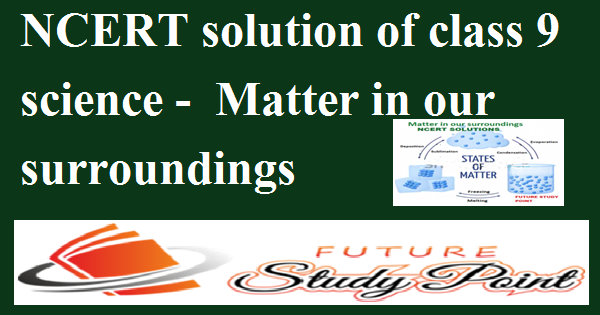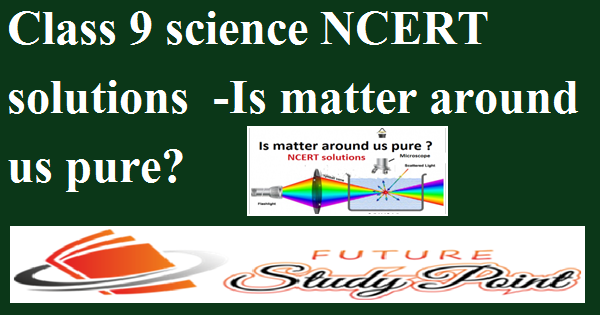NCERT Solutions Class 9 Maths exercise 6.3 -Lines and Angles
NCERT Solutions Class 9 Maths exercise 6.3 of the chapter 6-Lines and Angles are the solutions of the unsolved questions of exercise 6.3 -Lines and angles of class 9 maths. The questions of exercise 6.3 are easy to understand because the concept of geometry is based on the maths of previous classes as an example angle sum property of the triangles, the relationship between exterior angle and its opposite interior angles of a triangle, linear pair etc. Here you can study NCERT solutions of science and maths from class 9 to class 12, our articles on science and maths, sample papers, previous year question papers, tips for government and other entrance exams, and career in online jobs.
Click for online shopping
Future Study Point.Deal: Cloths, Laptops, Computers, Mobiles, Shoes etc
You can also study NCERT Solutions
NCERT Solutions of class 9 maths
Q1.In fig. 6.39, side QP and RQ of ΔPQR are produced to points S and T respectively, if ∠SPR = 135° and ∠PQT = 110°, find ∠PRQ.
Ans.We are given in figure ∠SPR = 135° and ∠PQT = 110°
∠PQT and ∠PQR are the linear pair(TQR is a line)
So, ∠PQT + ∠PQR = 180°
110°+ ∠PQR = 180°
∠PQR = 180°- 110° = 70°
∠QPR and ∠SPR are the linear pair (QPS is a line)
∠QPR + ∠SPR = 180°
∠QPR + 135° = 180°
∠QPR = 180° – 135° = 45°
∠PQR +∠QPR +∠PRQ = 180°(angle sum property of triangle)
∠PRQ + 70° + 45° = 180°
∠PRQ + 115° = 180°
∠PRQ = 180° – 115° = 65°
Q2. In fig.6.40 , ∠X = 62°, ∠XYZ = 54°, if YO and ZO are the bisectors of ∠XYZ and ∠XZY respectively of ΔXYZ, find ∠OZY and ∠YOZ.
Ans.We are given ∠X = 62°, ∠XYZ = 54°
YO is the bisector of ∠XYZ and ZO is the bisector of ∠XZY
∴∠OYZ = 54°/2 = 27° and ∠OZY = ∠XZY/2
∠X + ∠XYZ + ∠XZY = 180° (angle sum property of triangle)
62° + 54° + ∠XZY = 180°
116 + ∠XZY = 180°
∠XZY = 180° – 116 = 64°
Now ,In ΔYOZ we have
∠OZY = ∠XZY/2 = 64°/2 = 32°
Applying the angle sum property of triangle in ΔYOZ
∠OYZ + ∠OZY + ∠YOZ = 180°
27° + 32° + ∠YOZ = 180°
59 + ∠YOZ = 180°
∠YOZ = 180° – 59 = 121°
Hence the value of ∠OZY is 32° and of ∠YOZ= 121°
Q3.In fig.6.41 ,if AB ll DE, ∠BAC = 35° and ∠CDE = 53°, find ∠DCE.
Ans.We are given AB ll DE, ∠BAC = 35° and ∠CDE = 53°
Since AB ll DE and AE is transversal
So, ∠BAC = ∠DEC (alternate angle)
∠DEC = 35°
Applying the angle sum property of triangle in ΔDEC
∠DEC + ∠DCE + ∠CDE = 180°
35° + 53° + ∠DCE = 180°
88 + ∠DCE = 180°
∠DCE = 180° – 88 = 92°
Hence the value of the ∠DCE is 92°
Click-For online purchasing of Computer and Accessories
Q4.In fig.6.42 ,if lines PQ and RS intersect at point T, such that ∠PRT =40°,∠RPT =95° and ∠TSQ = 75°, find ∠SQT.
Ans. We are given in the fig.
∠PRT =40°,∠RPT =95° and ∠TSQ = 75°
Applying the angle sum property of the triangle in ΔPRT
∠RPT +∠PRT+ ∠PTR = 180°
95° + 40° + ∠PTR = 180°
135° + ∠PTR = 180°
∠PTR = 180°- 135° = 45°
Since PQ and RS are the lines
So, ∠PTR = ∠QTS (Vertically opposite angle)
∠QTS = 45°
Applying the angle sum property of triangle in ΔQTS
∠QTS + ∠TSQ + ∠SQT = 180°
45° + 75° + ∠SQT = 180°
120° + ∠SQT = 180°
∠SQT = 180°- 120° = 60°
Hence the value of ∠SQT is 60°
Q5. In fig.6.43, if PQ ⊥ PS, PQ ll SR, ∠SQR = 28° and ∠QRT = 65°, then find the values of x and y.
Ans.In the fig. we are given PQ ⊥ PS ⇒∠QPS =90°, PQ ll SR, ∠SQR = 28° and ∠QRT = 65°
Since PQ ll SR and QR is the transversal,so∠PQR (x + 28) and ∠QRT(65°) are the alternate angles.
x + 28° = 65°
x = 65° – 28° = 37°
Applying the angle sum property of triangle in ΔQPS
∠QPS +y+ x = 180°
90° + y + x = 180°
x + y = 180° – 90° = 90°
Putting the value of x=37°
y + 37° = 90°
y = 90°- 37° = 53°
Therefore the value of x is 37° and of y is 53°
Q6. In fig.6.44 ,the side QR of ΔPQR is produced to a point S.If the bisector of ∠PQR and ∠PRS meet at point T,then prove that ∠QTR = 1/2 ∠QPR.
Ans. In the fig. we are given QT is the bisector of ∠PQR and TR is the bisector of ∠PRS
∴∠TRS = 1/2 ∠PRS and ∠TQR = 1/2 ∠PQR
In ΔPQR , ∠PRS is the exterior angles of ΔPQR and ∠PQR and ∠QPR are the opposite interior angles.
We know the exterior angle of a triangle is the sum of opposite interior angles.
∠PRS = ∠QPR + ∠PQR……..(i)
In ΔQTR, ∠TRS is the exterior angles of ΔQTR and ∠TQR and ∠QTR are the opposite interior angles.
We know the exterior angle of a triangle is the sum of opposite interior angles
∠TRS = ∠TQR + ∠QTR
Since, we are given that ∠TRS = 1/2 ∠PRS and ∠TQR = 1/2 ∠PQR
∠PRS/2 = ∠PQR/2 + ∠QTR
∠PRS = ∠PQR + 2∠QTR…….(ii)
From the equation (i) and (ii), we have
∠QPR + ∠PQR = ∠PQR + 2∠QTR
∠QTR = 1/2 ∠QPR, Hence proved∴
See the video of each solution of execrcise 6.3
You can compensate us
Paytm number 9891436286
The money collected by us will be used for the education of poor students who leaves their study because of a lack of money.
NCERT Solutions of Science and Maths for Class 9,10,11 and 12
NCERT Solutions for class 9 maths
NCERT Solutions for class 9 science
NCERT Solutions for class 10 maths
CBSE Class 10-Question paper of maths 2021 with solutions
CBSE Class 10-Half yearly question paper of maths 2020 with solutions
CBSE Class 10 -Question paper of maths 2020 with solutions
CBSE Class 10-Question paper of maths 2019 with solutions
NCERT Solutions for Class 10 Science
NCERT Solutions for class 11 maths
| Chapter 1-Sets | Chapter 9-Sequences and Series |
| Chapter 2- Relations and functions | Chapter 10- Straight Lines |
| Chapter 3- Trigonometry | Chapter 11-Conic Sections |
| Chapter 4-Principle of mathematical induction | Chapter 12-Introduction to three Dimensional Geometry |
| Chapter 5-Complex numbers | Chapter 13- Limits and Derivatives |
| Chapter 6- Linear Inequalities | Chapter 14-Mathematical Reasoning |
| Chapter 7- Permutations and Combinations | Chapter 15- Statistics |
| Chapter 8- Binomial Theorem | Chapter 16- Probability |
CBSE Class 11-Question paper of maths 2015
CBSE Class 11 – Second unit test of maths 2021 with solutions
NCERT solutions for class 12 maths
| Chapter 1-Relations and Functions | Chapter 9-Differential Equations |
| Chapter 2-Inverse Trigonometric Functions | Chapter 10-Vector Algebra |
| Chapter 3-Matrices | Chapter 11 – Three Dimensional Geometry |
| Chapter 4-Determinants | Chapter 12-Linear Programming |
| Chapter 5- Continuity and Differentiability | Chapter 13-Probability |
| Chapter 6- Application of Derivation | CBSE Class 12- Question paper of maths 2021 with solutions |
| Chapter 7- Integrals | |
| Chapter 8-Application of Integrals |
Class 12 Solutions of Maths Latest Sample Paper Published by CBSE for 2021-22 Term 2
Class 12 Maths Important Questions-Application of Integrals
Solutions of Class 12 Maths Question Paper of Preboard -2 Exam Term-2 CBSE Board 2021-22
Solutions of class 12 maths question paper 2021 preboard exam CBSE Solution










